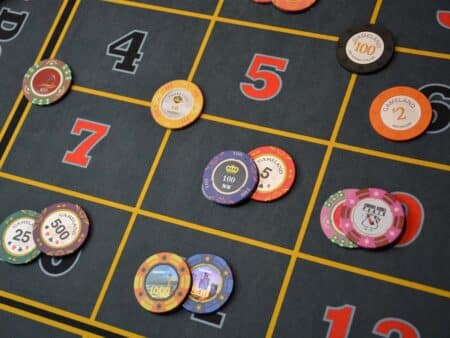Read the article to better understand the psychology of human gambling behavior.
Understanding the Mind of a Gambler
To understand the psychology of gambling, one must delve deep into the labyrinth of the human mind. Each gambler has his or her own motivations, and while some enjoy a casual game, others cannot resist the call of the sirens. By distinguishing between recreational gamblers and gamblers on the verge of addiction, one can better understand gambling behavior.
The Driving Forces Behind Gambling
The casino is like a stage where each player has his role, motivated by his own desires:
- Pleasures and rewards: In addition to the thrill of the game, many are drawn to the lure of bonuses and promotions that casinos offer.
- Adrenaline rush: The thrill of winning at gambling is comparable to the elation of a last-minute goal or a shot that sounds the siren.
- Social ties: In addition to betting and gambling, casinos often serve as social gathering places where friends come together and strangers become acquaintances.
- Flaunt wealth: For high rollers, the tables are platforms to show off their wealth.
- The pursuit of VIP elegance: the lure of exclusive treatment reserved for those who place the highest stakes can be irresistible.
- The intellectual challenge: Strategy games, especially poker (common poker mistakes), offer more than just luck, they provide a platform to outwit and outsmart your opponent.
- Profit motive: With the right skill and a bit of luck, gambling can go from hobby to profession.
By knowing motives, we can better understand people’s gambling conduct.
The Shadowy Realms of Gambling: Insights from Research
While the majority indulge in gambling as a recreational activity, there is a group for whom the line between recreational activity and obsession is blurred. This group, which includes problem and pathological gamblers, exhibits behavior that can escalate to addiction. Their relationship with casinos is similar to that of drug addicts with their drug of choice. The dire consequences include not only financial problems, but also emotional turmoil, deterioration of mental health, and strained social relationships.
The Underlying Triggers for Problem Gamblers
Combating the threat of problem gambling begins with understanding its origins. Several factors act as catalysts that lead gamblers down this treacherous path:
- Seeking refuge: For many, gambling provides a refuge from life’s trials and tribulations.
- Hubris and illusions: Believing they have a surefire strategy or the ‘secret’ to beating the house can keep them coming back.
- The endless chase: the optimism of turning the next game, whether to win a victory or make up for a defeat, becomes an obsession.
- The delusions of the mind: cognitive distortions, such as remembering only the high points of victories and overlooking the low points of defeats, play tricks on the mind.
- Convenience and temptation: In our digital age, where gambling opportunities are just a mouse click away, it becomes even harder to resist the urge.
In many cases, these triggers overlap with the motives of recreational gamblers. This overlap makes it difficult to know when a pastime is turning into a potentially destructive addiction.
Path to Recovery and Redemption
It is alarming that the vast majority of problem gamblers remain trapped in denial and do not seek the help they desperately need. The silver lining, however, is the increasing awareness and support mechanisms that are in place. Regulated gambling environments provide opportunities for intervention, such as counseling centers, self-exclusion mechanisms, and therapeutic support groups. Early recognition, understanding, and compassionate intervention can make a significant difference in the life course of a problem gambler.
Concluding Thoughts
The psychology of gambling is a spectrum, with casual, free-budget gamblers at one end and those struggling with addiction at the other. While gambling can provide moments of joy, thrill, and social bonding for many people, it’s imperative to recognize and address when it crosses the line into addiction. By understanding the triggers and underlying motivations, society and individuals can ensure that gambling remains what it should be – a recreational activity and not a life-changing compulsion.







